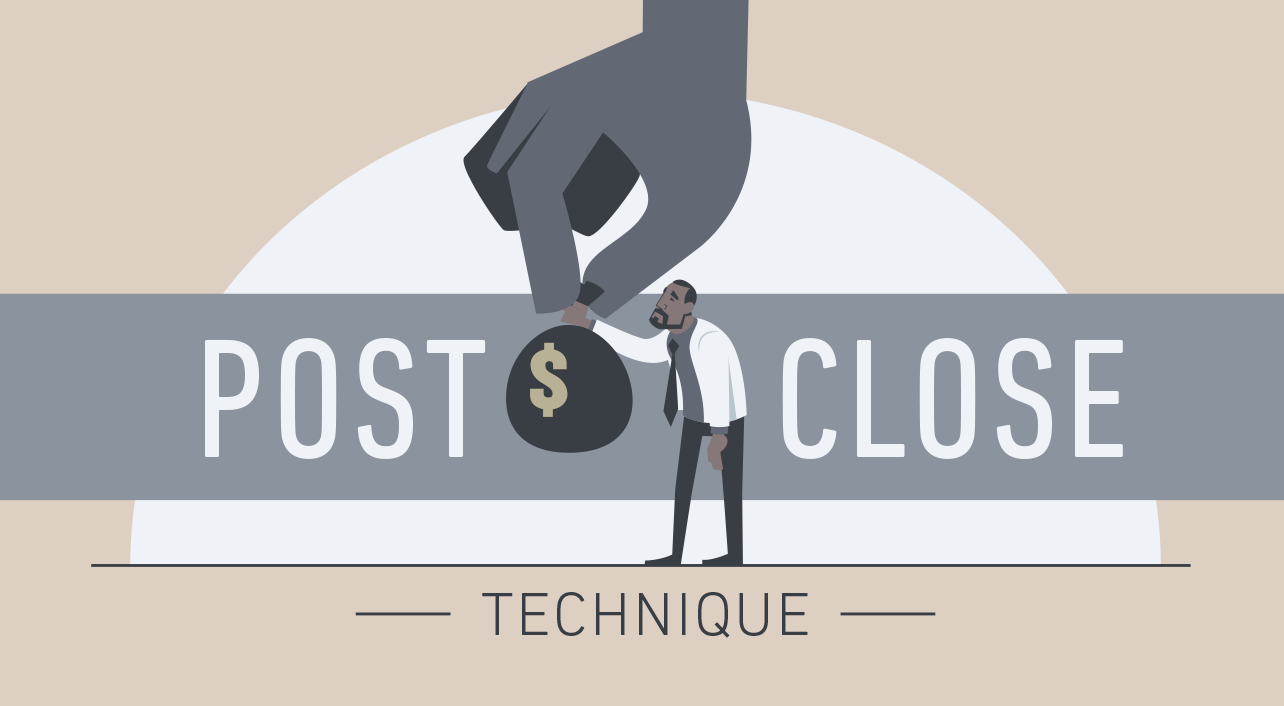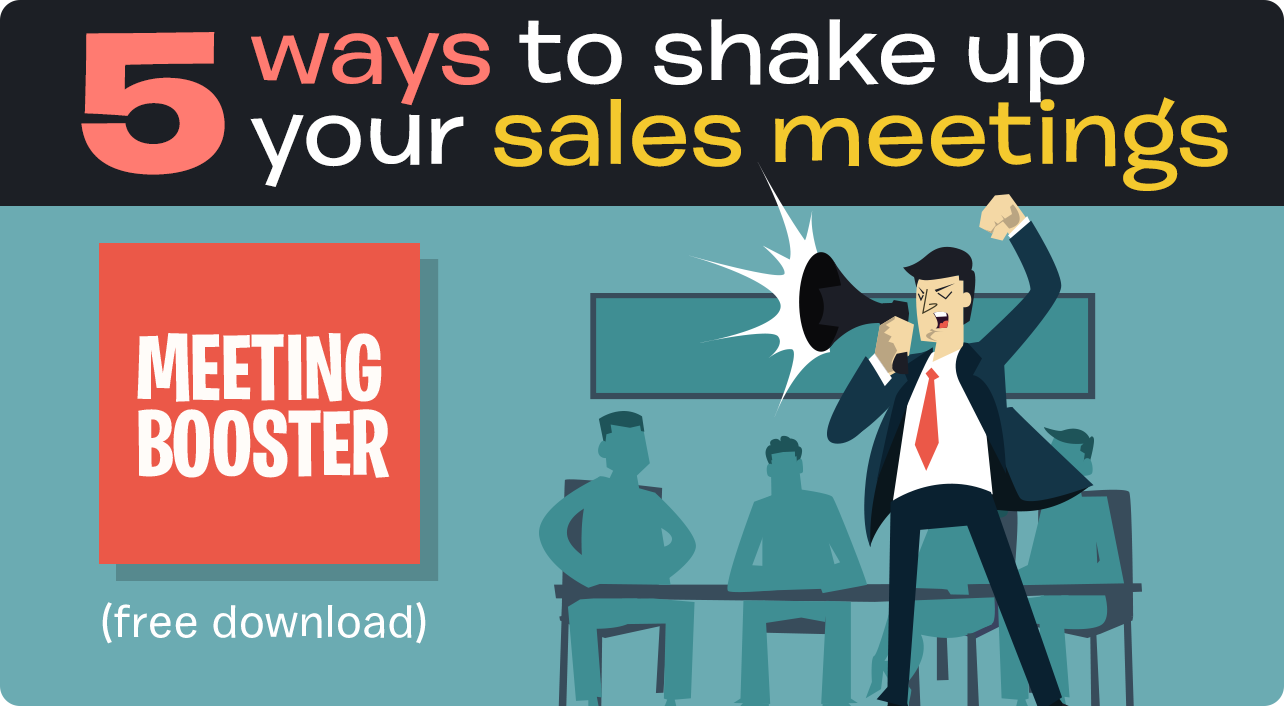- sales
- Blog post
How the ‘Post-Close’ technique can lock in your sale
You’ve just gotten a verbal agreement on big deal you’ve been working on for three months. Your buyer tells you to come back the next day with the paperwork.
But when you bring the contract the following day, he puts on a forced smile and informs you that something has come up. He’s not going to sign after all.
What happened?
Rattled by the rival
It wasn’t that your customer misrepresented his decision to buy from you. He was genuinely fed up with his current vendor’s inability to make deliveries on time, and decided to give you a chance.
But when he called that vendor to break the news, his account rep fought to keep the account. He made the standard arguments: “Are you sure you want to break up a long-term relationship?” “Don’t you see that switching could be very disruptive?” “What about the serious long-term risks?”
The buyer wasn’t prepared for this pushback. It made him feel uncomfortable, even rattled. And he caved.
Too bad. You could have saved this deal if you’d anticipated that your rival would fight back, and prepared your buyer using a technique known as the Post Close. The Post Close resembles the witness preparation that lawyers use to get their witnesses ready for confrontations in the courtroom. Witness prep has been proven to work. In one study, researchers at the University of Alabama used mock witnesses in simulated court trials and found that witness prep made the participants less jittery and more confident, even when confronted with hostile cross-examination.
And cross-examination is pretty much what your competitor did – he asked tough questions that caught your buyer off guard and made him doubt himself.
A Post-Close scenario
Let’s look at how you could have prepared your buyer for pushback from his current vendor.
YOU: “I’m delighted that you want to give us your business. But let me ask you this: When your current vendor tries to convince you to stay, what exactly will you say?”
BUYER: “Hmmm, haven’t thought about that, but I guess I’ll just tell him I’ve found another vendor.”
That’s not strong enough. He didn’t say, “I’m terminating our agreement” or even “I’m switching to another vendor.” You have more work to do.
YOU: “I’m sensing some hesitation. I want to be sure you’re 100% comfortable with your decision to go with us. So, let me review it. In our first meeting, you told me you were frustrated because your vendor kept missing delivery dates, and those mistakes reflected badly on you. Right?”
BUYER: “Yes. My boss was furious about the lost revenue from botched deliveries.”
YOU: “So based on what we discussed, are you convinced we can make a smooth transition and do what we’ve promised?”
BUYER: “I am. Your references were excellent.”
YOU: “So when your current vendor gives you 20 reasons why they should keep the business, what exactly will you say?”
BUYER: “I’ll say, ‘Your late deliveries cost us money and hurt my reputation. I’m switching to a vendor who has a stronger reputation for on-time delivery.’”
YOU: “And when they bring up your long-standing relationship with them, what will you say to that?”
BUYER: “That if the relationship was so important to them, they should have done a better job and not put me in such a bad spot.”
Reinforcing the commitment
This Post-Close approach did two things:
- When you asked your “closed” prospect to revisit his reasons for switching, it reinforced his commitment to making the change.
- The “What will you say?” questions allowed him to rehearse the tough conversation he’d have with his current vendor, which gave him the confidence to stick with his decision to switch.
Post-Close preparation isn’t always about handling pushback from existing vendors. You might use it to prepare buyers for pushback from their superiors or from the purchasing manager, who might raise questions about price, risk, reliability, switching costs or something else.
It takes nerve to challenge a buyer who’s just said “yes” but it’s worth it. When you engage buyers in a Post-Close discussion, you prepare them for pushback, lock in their commitment and vastly increase the likelihood that your deal will get signed.
This blog entry is adapted from the Rapid Learning module “The Post Close: How to avoid last-minute surprises and lock in the sale. ” If you’re a Rapid Learning customer, you can watch the video here. If you’re not, but would like to see this video (or any of our other programs), request a demo and we’ll get you access.
The blog post and Rapid Learning video module are based on the following research study: Boccaccini, M. et al. (2004) Effects of Witness Preparation on Witness Confidence and Nervousness. Journal of Forensic Psychology Practice, 3:4,39-51.

Get a demo of all our training features
Connect with an expert for a one-on-one demonstration of how BTS Total Access can help develop your team.



